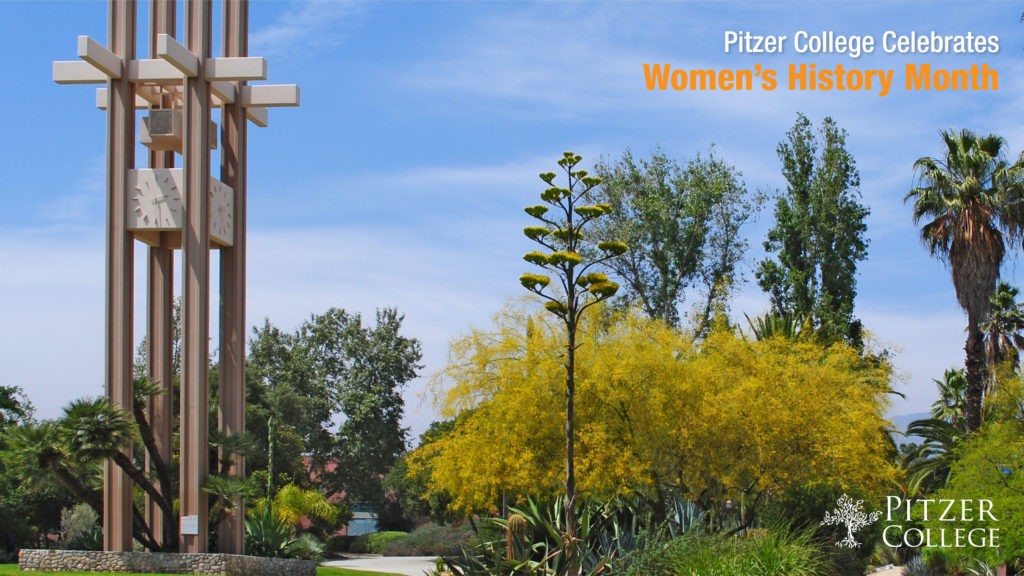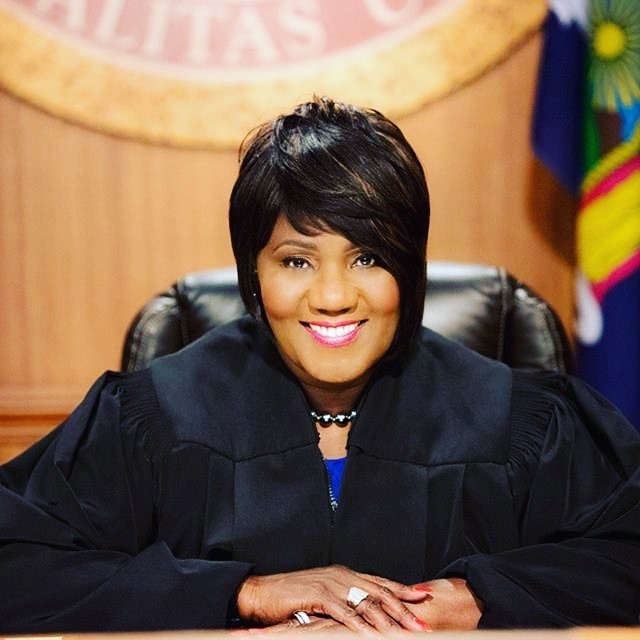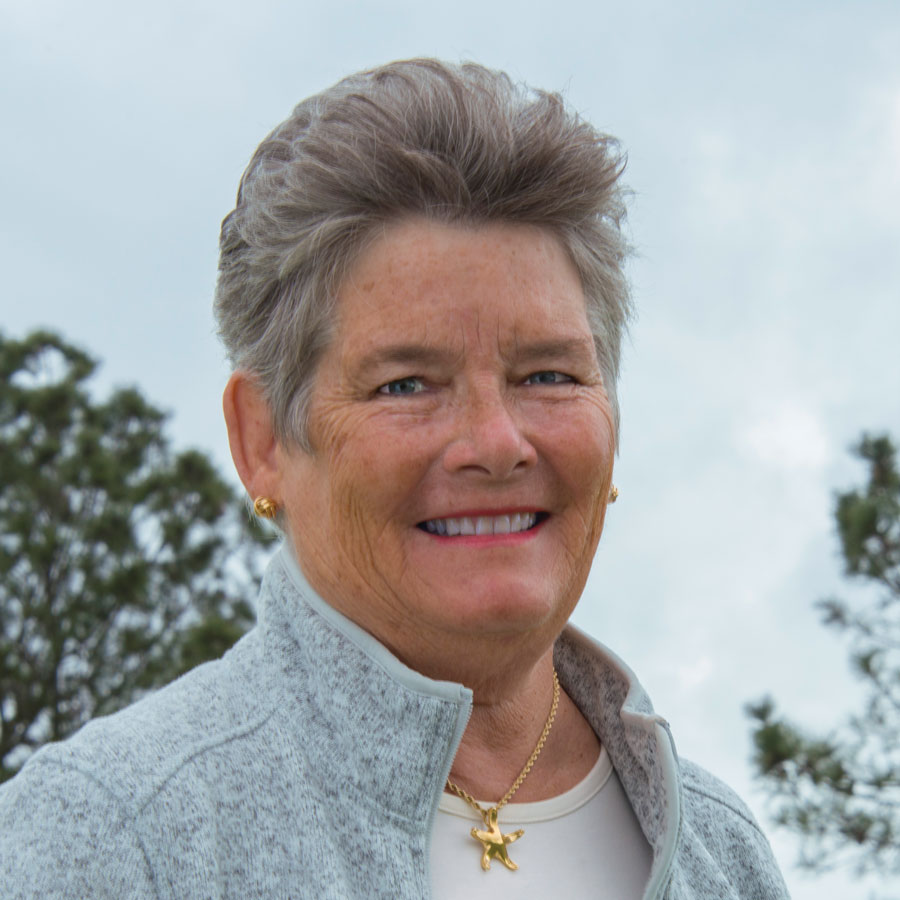
Join Pitzer College as we honor and encourage the study, observance, and celebration of the vital role of women throughout American history. We will share community members’ thoughts on Women’s History Month and information about any related events at Pitzer and The Claremont Colleges. Please check this page often—features will be added throughout March.
Pitzer recognizes national history and heritage months as part of its celebration of the diversity of the College community. It is also committed to exploring issues related to history and heritage year-round. We’ve included links to virtual resources to explore women’s history—and Pitzer’s origins as a women’s college.
As President Melvin L. Oliver said more than 20 years ago, it’s crucial “to stop looking at a slice of history…and to instead look at the scope of history” to change public policy—and to honor, celebrate, and write the next chapter.
Pitzer Community Spotlights
 Mablean Ephriam ’71
Mablean Ephriam ’71
Meet a Pitzer Alumna
Mablean Ephriam ’71, known as Judge Mablean, Entertainment Studios TV Court Judge
Major at Pitzer
Political Science
Professional Affiliations
Founder/CEO, Mablean Ephriam Foundation, Inc, a nonprofit organization providing scholarships and mentor programs to Los Angeles County residents; State Bar of California; Black Women Lawyers Association of Los Angeles; National Bar Association
What does Women’s History Month mean to you?
Women’s History Month is a time to reflect and highlight the accomplishments and contributions women have made to our homes, our schools, our communities, worldwide; a time to appreciate the gift of women to the world. Women make the world go round. We give birth to, nurture, mold, and shape the minds of every human being. Without us, there is no past, present or future. Women are necessary. Women matter. Women rule.
Are there any books you would recommend reading to learn something new about women’s history?
Read the Bible stories of women and their contributions starting with Mary, Mother of Jesus, Ruth, and Esther. Read the biographies of women like Constance Baker Motley, the first Black woman to argue a case before the Supreme Court and the first to serve as a federal judge. Read about your mother, grandmother, and all the women ancestors in your family and the contributions they made. Read my books: Life Lessons: 52 Tools for Weekly Living and Look Deep Before You Leap: Heed the Red Flag Warnings to Avoid Unhealthy Relationships.
 Assistant Professor of History Urmi Engineer Willoughby
Assistant Professor of History Urmi Engineer Willoughby
Meet a Pitzer Professor
Urmi Engineer Willoughby (she/they)
Pitzer Affiliation
Assistant Professor of History
Recent Classes
Ecological History, Historical Epidemiology, Food and Agriculture, Disease and Disasters in North American History, History of New Orleans
Research Interests
Environmental History, North American History, World History, Disease Ecology, Medicine and Public Health
Published Books
Yellow Fever, Race, and Ecology in Nineteenth-Century New Orleans (LSU Press, 2017); co-author, A Primer for Teaching Women, Gender, and Sexuality in World History (Duke University Press, 2018)
You co-authored A Primer for Teaching Women, Gender, and Sexuality in World History. Why is it important to teach and study the role of women in history?
I believe that it is important to teach and study the diverse experiences of peoples throughout history, and studying women’s history is integral to understanding historical patterns and processes. However, women’s history includes more than just the role of women. Studying women’s history allows us to gain a deeper knowledge of gendered relations, power structures, human sexuality, reproduction, and changing historical dynamics around these processes. It is especially important to integrate women’s history, gender, and sexuality in national and world historical narratives, and to examine the ways in which gender and sexuality intersect with the historical development of systems of labor, power, and identity formation.
Are there any books that you recommend for people who want to celebrate this month by learning something new about women’s history?
There has been a lot of fantastic research published on women’s history and gender in recent years. I would recommend Deirdre Cooper Owens’ Medical Bondage: Race, Gender, and the Origins of American Gynecology and Jessica Marie Johnson’s Wicked Flesh: Black Women, Intimacy, and Freedom in the Atlantic World.
 Catherine Acosta ’05, Assistant Director of Financial Aid
Catherine Acosta ’05, Assistant Director of Financial Aid
Meet a Pitzer Staff Member and Alumna
Catherine Acosta ’05 (she/her)
Pitzer Affiliations
Assistant Director of Financial Aid; Class of 2005 graduate; member of the Student Employment Working Group
Major at Pitzer
Combined Organizational Studies and Sociology major
What does Women’s History Month mean to you?
Women’s History Month means acknowledging the hardships and struggles of the women who came before me and paved the pathway for me to be the woman I am today.
How do you celebrate Women’s History Month?
To be honest, I don’t celebrate women’s history during a designated month, I celebrate it every day as there are several women in my life who are worthy of celebrating every day. They embody what it means to be a woman and have paved the way for women like me.
 Louise Beaudette Thornton ’68
Louise Beaudette Thornton ’68
Meet a Pitzer Trustee and Alumna
Louise Beaudette Thornton ’68
Pitzer Affiliation: Pitzer College Trustee; Class of 1968 Alumna
Professional and voluntary associations: Retired Certified Estate Planner; Laguna Ocean Foundation (Retired Chair); Orange County Marine Protected Areas Council (Former Chair); Pitzer College (Past President, Alumni Association)
Why is it important to understand the role of women in history?
As I write this, the first Black woman has been nominated to the United States Supreme Court. Simultaneously, Ukrainian women are once again taking up arms to protect their homeland.
How will history books report these events? Will they be mentioned or ignored altogether? Women have played as important a part in world history as men, regardless of color or creed, but we seldom hear of their roles.
It remains the obligation of each of us to shed light on the forgotten peoples, forces, and events that shape our history. We should be celebrating all accomplishments and mourning our common tragedies.
When you enrolled at Pitzer, it was a women’s college, and you are part of the College’s first four-year class. How did your time at Pitzer shape you?
Today, I view the ’60s as an experiment in voice. There were the Vietnam War protests, the Hippies’ songs of love and togetherness, and feminism was re-emerging to demand equal treatment beyond the vote.
Beyond the allure of “brand new,” Pitzer’s decision to embrace a community governance model changed the lives of the women who entered in 1964. Simply put, Pitzer allowed—encouraged—us to find our voices!
I graduated into what evolved into estate planning. I specifically geared my own practice towards those throughout the Central Coast and Southern California without easy access to such information. I shaped a rewarding career with the reasoning my Pitzer education fostered and the voice it encouraged to bloom.
Class of 1968 Timeline
Pitzer was founded as a women’s college nearly 60 years ago. Founding faculty member and Professor Emeritus of Classics Stephen L. Glass once said that Pitzer’s Latin motto, provida futuri, “was composed to be read, ‘A woman mindful of the future.’” When the College opened its doors in 1964, the 153 students who enrolled in the school were women who were mindful of the future, and they helped make Pitzer what it is today.
To learn more about the Class of 1968, Pitzer’s first four-year class, visit the Pitzer College Archives Class of 1968 Timeline.
Events
Power Hungry
March 1, 5-6 p.m.
A Virtual Event
Scripps Presents kicks off Women’s History Month with Power Hungry, a conversation with Cleo Silvers, an activist who was a member of the Harlem branch of the Black Panthers, Suzanne Cope, the author of Power Hungry: The Women of the Black Panther Movement, Freedom Summer, and Their Fight to the Movement, and Scripps student Scotland Carter SC’24. Visit Scripps College’s Events Calendar for more information.
Zoom Backgrounds
Celebrate Women’s History Month with one of our Zoom backgrounds.
To download: Click on the image to open a larger file, then download it to your computer.
Additional Online Resources and Events
The Intercollegiate Feminist Center of the Claremont Colleges
Women’s History Month
International Women’s Day
National Women’s History Museum
Library of Congress Women’s History Collection